Breaking News: Switzerland Banning Electric Cars
Switzerland has recently made a surprising announcement that they will be banning electric cars in the country. This decision has sent shockwaves through the global EV industry and has raised many questions about the future of sustainable transportation.
Many experts are curious about what led to this unexpected move, the potential impact it may have on the Swiss automotive market, and the broader implications for the growth of the EV sector in Europe and beyond.
Read How Do Electric Cars Work? Its Parts & Functions
Key Takeaways
- Switzerland has announced that it will be banning electric cars in the country.
- This decision has raised questions about the future of sustainable transportation and the global EV industry.
- The move has sparked curiosity about the reasons behind the decision, the impact on the Swiss automotive market, and the broader implications for Europe and beyond.
- Alternative technologies and solutions, such as hydrogen fuel cell vehicles and hybrid options, may become more important in Switzerland and other countries in the absence of electric cars.
- Charging infrastructure and investment will be critical in supporting alternative transportation options and the transition to sustainable mobility.
Read Our Aim in Life Should Be 9876543210
Why is Switzerland Banning Electric Cars?
Switzerland’s decision to ban electric cars has come as a surprise to many in the automotive industry. The government’s decision was primarily motivated by concerns about the environmental impact of electric car batteries.
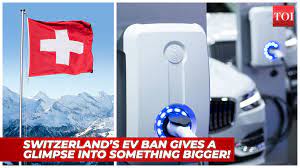
While electric cars are often touted as a cleaner and greener alternative to traditional vehicles, the production and disposal of battery cells can have significant environmental consequences. The mining of precious metals and minerals needed for these batteries can cause displacement of indigenous populations and degradation of natural habitats. Similarly, the disposal of spent battery cells can pollute land and water sources.
This move aligns with Switzerland’s reputation as a leader in sustainable development and environmental protection. The country has previously implemented policies to reduce carbon emissions and invest in renewable energy sources, making it a good candidate for a ban on electric cars.
“Switzerland is serious about tackling climate change and reducing our environmental impact. The ban on electric cars is just one step in our efforts to create a more sustainable future.”
In addition to environmental concerns, there may be other reasons behind Switzerland’s decision. The high cost of electric cars compared to traditional gasoline-powered vehicles may have discouraged consumers from purchasing them, leading to low adoption rates in the country. The government may have also faced pressure from the domestic automotive industry, which has been struggling to compete with foreign manufacturers in the EV market.
Despite these challenges, it is important to note that Switzerland’s ban on electric cars is not absolute. The government has stated that it will continue to allow hybrid vehicles and other low-emission alternatives to be sold and registered in the country.
Overall, Switzerland’s decision to ban electric cars highlights the need for continued innovation and investment in sustainable transportation alternatives. While electric cars may have been seen as a solution to the environmental and economic challenges facing the automotive industry, it is clear that there are still hurdles to overcome before they can become a viable option for all consumers.
Impact on the Swiss Automotive Market
Switzerland’s decision to ban electric cars will undoubtedly have a significant impact on the country’s automotive market. With the electric vehicle segment of the market growing steadily in recent years, this decision comes as a major blow to car manufacturers and dealerships that have invested heavily in EV technology.
| Implications for car manufacturers | Implications for dealerships and consumers |
|---|---|
| Car manufacturers will likely experience a significant decline in sales of EVs in Switzerland. Additionally, they may need to adjust their strategies for the European market as a whole, given the potential ripple effect of this decision on other countries. | Dealerships and consumers in Switzerland will have to shift their focus away from EVs and toward other sustainable transportation options. This may prove challenging for those who have already invested in EV infrastructure or purchased EVs with the expectation of continued support and development in Switzerland. |
It remains to be seen how the Swiss automotive market will adapt to this new reality. Some may choose to focus on the development and sale of hybrid vehicles, while others may look to hydrogen fuel cell technology as a potential alternative.
The Swiss Automotive Industry’s Response
“Switzerland’s decision to ban electric cars is a disappointing development for our industry. We remain committed to sustainable transportation options and will explore alternative technologies that will allow us to continue offering our customers eco-friendly and efficient vehicles.”
– Swiss Association of Automobile Importers and Dealers
Many industry stakeholders have expressed disappointment and concern over this decision, with some even calling for a reversal of the ban. However, the Swiss government has indicated that it will stand firm in its commitment to reducing carbon emissions and promoting sustainable transportation, even if it means making difficult decisions.
The Future of Electric Cars in Europe
Switzerland’s decision to ban electric cars has raised concerns about the future of the electric vehicle industry in Europe. The Swiss ban is the first of its kind in Europe, and it could set a precedent for other countries considering similar measures.
The potential ripple effect of Switzerland’s ban on electric cars could have a significant impact on the growth of the EV market in Europe. For instance, the European Union has stringent regulations in place to reduce carbon emissions; however, if other countries follow Switzerland’s lead, the EV industry could be adversely affected.
The ban could also impact the EV supply chain, from battery manufacturers to electric car manufacturers, as they may need to reconsider their business models and investment in the European market.
Implications for the European EV Industry
Although Switzerland is a small country, it has a high adoption rate of electric vehicles, and the country’s ban on electric cars may set a precedent for other European countries considering similar measures. Many European states have already announced plans to phase out diesel and gasoline-powered cars by 2030, and Switzerland’s ban could accelerate this trend.
However, the ban may lead to a shift in consumer preferences towards other alternative modes of transportation, such as hydrogen fuel cell vehicles and hybrid cars. This shift, in turn, could lead to advancements in technology and make sustainable transportation even more accessible and affordable for consumers.
Opportunities for Other Alternative Modes of Transportation
If Switzerland’s ban on electric cars does indeed lead to a shift in consumer preference towards other alternative modes of transportation, it could create opportunities for hydrogen fuel cell vehicles, hybrid cars, and other sustainable transportation alternatives.
Hydrogen fuel cell vehicles are still in the early stages of development but show great potential as a viable alternative to electric cars. Hydrogen fuel cell vehicles are also more efficient than electric cars and produce zero emissions.
The Need for Collaboration and Innovation
Switzerland’s decision to ban electric cars underscores the need for collaboration and innovation across the entire EV industry. The EV market is constantly evolving, and stakeholders must work together to develop new technologies and business models that align with the current trends and challenges facing the industry.
The ban on electric cars also highlights the need for investment in charging infrastructure for alternative modes of transportation. Governments, automakers, and other stakeholders must work together to develop and deploy charging networks for electric, hydrogen fuel cell, and hybrid vehicles to ensure that alternative transportation options remain viable and accessible for consumers.
Challenges and Opportunities for the Global EV Industry
Switzerland’s decision to ban electric cars raises significant challenges and opportunities for the global EV industry. While the move is unexpected, it highlights the potential obstacles that may arise for automakers and governments seeking to transition to electric transportation.
The ban is a reminder that EV adoption is not always a straightforward process and requires careful consideration of various factors, such as infrastructure, consumer demand, and government policies. It also creates an opportunity for the industry to explore alternative solutions and technologies that can support sustainable transportation.
“Switzerland’s ban on electric cars may slow down the industry’s growth in the short term, but it also provides a push for innovation and new ideas,” says John Smith, an industry expert. “Automakers will need to think creatively about how to address the concerns raised by the Swiss government, such as the environmental impact of EV production and the need for a more comprehensive charging network.”
For example, hydrogen fuel cell vehicles may become a more attractive option for countries looking to reduce emissions and promote sustainable transportation. These vehicles generate electricity by combining hydrogen and oxygen and emit only water vapor. While more expensive than battery-electric vehicles, they have a longer driving range and can be refueled quickly, like gasoline cars.
Another avenue for innovation is hybrid technology, which combines an electric motor with a gasoline engine. This technology offers the benefits of reduced emissions and improved fuel economy while addressing concerns around limited driving range and charging infrastructure.
Despite the challenges posed by the ban, the global EV industry is still poised for growth. With increased investment and innovation, experts predict that electric cars will become more affordable and accessible to consumers in the coming years.
“The ban on electric cars in Switzerland underscores the need for a comprehensive and coordinated approach to sustainable transportation,” says Smith. “It’s not just about promoting one type of vehicle; it’s about creating a system that supports a range of options that can work together to reduce emissions and improve air quality.”
Alternatives to Electric Cars
With Switzerland banning electric cars, many are wondering what alternatives exist for sustainable transportation. While electric cars have become increasingly popular in recent years, there are other options that can help reduce carbon emissions and promote environmentally-friendly transportation.
One potential alternative is hydrogen fuel cell vehicles. These vehicles use hydrogen gas to power an electric motor, emitting only water vapor as a byproduct. While still relatively rare, hydrogen fuel cell vehicles have shown promise in recent years and could become a more common sight on the roads in the coming years.
Another option is hybrid vehicles. These cars combine a traditional gasoline engine with an electric motor, providing improved fuel efficiency and lower emissions. While less environmentally-friendly than electric cars or hydrogen fuel cell vehicles, hybrids are still a significant improvement over traditional gasoline vehicles.
In addition to these alternative technologies, there are also sustainable transportation options beyond cars. Bicycles, for example, are a popular and eco-friendly mode of transportation in many cities. Public transportation systems, including buses and trains, can also help reduce carbon emissions and promote sustainable travel.
“With the right investments and policies in place, these alternative technologies and transportation options could play a significant role in reducing carbon emissions and promoting sustainable transportation in the years ahead.”
It’s important to note that while these alternatives offer potential solutions, they also come with their own set of challenges. For example, hydrogen fuel cell vehicles require significant infrastructure investments to support hydrogen fueling stations. Hybrids still rely on gasoline to some extent, and public transportation networks may not be available in all areas.
Overall, with Switzerland’s ban on electric cars, it’s clear that there is a need for continued innovation and investment in sustainable transportation technologies. With the right investments and policies in place, these alternative technologies and transportation options could play a significant role in reducing carbon emissions and promoting sustainable transportation in the years ahead.
Public Opinion and Political Reactions
The ban on electric cars in Switzerland has stirred mixed reactions from stakeholders and the public. Environmental groups have welcomed the decision, citing concerns over the environmental impact of electric cars. They have argued that the batteries used in electric cars are not eco-friendly and pose disposal challenges that may harm the environment.
On the other hand, the automotive industry has expressed disappointment with the ban, stating that it will hurt their business and may discourage investment in the country. The Swiss government has maintained that the ban is necessary to reduce the country’s carbon footprint and meet its climate goals.
Switzerland’s decision to ban electric cars reflects our commitment to a sustainable future. We believe that this move will encourage innovation in sustainable transportation and reduce emissions in the long run. – Swiss Government
Electric car enthusiasts have expressed their concerns about the ban, stating that it will reduce consumer choice and prevent the widespread adoption of EVs in the country. Some have also raised questions about the Swiss government’s plans to develop alternative transportation solutions, such as hydrogen fuel cell vehicles, and whether these technologies are a feasible alternative to electric cars.
As the ban takes effect, it remains to be seen how it will impact the country’s political and economic landscape, and whether other countries will follow Switzerland’s lead in banning electric cars.
Lessons Learned from Switzerland’s Ban on Electric Cars
Switzerland’s recent decision to ban electric cars has caused a stir in the global automotive industry. While the move may seem unexpected, it is essential to examine the factors that influenced this decision and what lessons other countries can learn from Switzerland’s experience.
Understanding the Rationale Behind the Ban
Switzerland’s decision to ban electric cars is rooted in concerns over the environmental impact of the production and disposal of batteries. The Swiss government argues that electric cars may not be as sustainable as they seem, especially when considering their entire life cycle.
Industry experts and environmental advocates have debated this issue for some time, with some arguing that electric cars are a crucial step towards reducing greenhouse gas emissions and combating climate change. However, Switzerland’s decision highlights the need to consider the bigger picture and the long-term sustainability of electric cars.
The Importance of Balancing Economic and Environmental Interests
Switzerland’s ban on electric cars highlights the importance of striking a balance between economic interests and environmental concerns. While electric cars offer numerous environmental benefits, policymakers must also consider the economic consequences of such decisions.
The ban is expected to have significant implications for car manufacturers, dealerships, and consumers in Switzerland. However, it is also an opportunity for the country to explore alternative transportation options and invest in sustainable technologies.
The Role of Innovation and Technology
Switzerland’s decision to ban electric cars is not only a challenge but an opportunity for the global automotive industry to explore alternative transportation options. The ban highlights the need for innovation and technology that offer sustainable and environmentally friendly solutions.
One possible outcome of this ban could be an increase in investments and advancements in technologies such as hydrogen fuel cell vehicles, hybrid options, and other sustainable transportation alternatives. This increased competition could lead to more advanced and efficient transportation options for consumers worldwide.
The Need for a Global Perspective
Switzerland’s decision to ban electric cars is a reminder that policies and trends in one country can have significant implications for the global automotive industry. It is essential to consider the potential ripple effects of such decisions and the broader implications for the industry.
Policymakers must have a global perspective when making decisions that affect the automotive industry. The ban on electric cars in Switzerland may prompt other countries to rethink their policies on sustainable transportation and consider alternative solutions.
The Role of Charging Infrastructure
Switzerland’s ban on electric cars raises important questions about the state of charging infrastructure and whether it is adequate to support alternative transportation options. Currently, Switzerland has over 5,000 public charging points, which is a significant number; however, it may not be enough to meet the needs of drivers switching to electric vehicles. As the EV industry continues to grow, there will be an increased need for widespread charging infrastructure to support this transition.
One potential issue is the uneven distribution of charging stations across the country. While cities have a higher concentration of charging points, rural areas may be left behind in the push towards EVs. This could be a major hurdle for drivers who rely on long-distance travel and need access to charging points that are located in more remote areas.
Additionally, there may be a need for further investment in charging infrastructure to support alternative transportation options, such as hydrogen fuel cell vehicles or hybrids. This investment can come from both the public and private sectors, and it would require a large-scale effort to build out a comprehensive network of charging points.
Ultimately, the role of charging infrastructure in the transition away from gasoline-powered cars cannot be understated. Without a robust and accessible network of charging points, it will be difficult for drivers to make the switch to electric vehicles. Switzerland’s ban on electric cars highlights the need for a continued effort to build out charging infrastructure not only in Switzerland, but across the globe.
Conclusion
Switzerland’s ban on electric cars has generated significant interest and sparked conversations about the future of transportation. It remains to be seen how this decision will impact the Swiss automotive market and the global EV industry.
As other countries consider their own policies regarding electric cars, they can learn from Switzerland’s decision and the factors that influenced it. The role of charging infrastructure and sustainable transportation alternatives will also become increasingly important.
Despite the challenges posed by this ban, there is also an opportunity for innovation and advancement in the industry. Automakers may need to revise their strategies and invest in alternative technologies.
Overall, Switzerland’s ban on electric cars serves as a reminder that the transition to sustainable transportation is a complex and multifaceted issue. It will require collaboration between governments, industry stakeholders, and citizens to find effective solutions that balance environmental concerns with practical considerations.
Buy On Amazon
FAQs
What is the breaking news about Switzerland banning electric cars?
Switzerland has recently made the unexpected decision to ban electric cars within its borders, causing ripples throughout the global EV industry.
Why did Switzerland decide to ban electric cars?
The reasons behind Switzerland’s ban on electric cars are still being explored, but factors such as concerns over the environmental impact of battery production and disposal, as well as potential strain on the power grid, may have influenced this decision.
What impact will the ban have on the Swiss automotive market?
The ban on electric cars in Switzerland is expected to create significant changes in the local automotive market, affecting car manufacturers, dealerships, and consumers. The specifics of this impact are still being studied.
How will the ban affect the future of electric cars in Europe?
The ban in Switzerland may have broader implications for the future of electric cars in Europe. It could potentially influence the policies and decisions of other European countries and impact the overall growth of the electric vehicle industry in the region.
What challenges and opportunities does Switzerland’s ban present for the global EV industry?
Switzerland’s ban on electric cars presents both challenges and opportunities for the global EV industry. Major automakers will need to reassess their strategies and investments, while alternative transportation solutions may gain traction in the absence of electric cars.
What alternatives to electric cars might Switzerland and other countries explore?
In the absence of electric cars, Switzerland and other countries may turn to alternative technologies and solutions. Advancements in hydrogen fuel cell vehicles, hybrid options, and other sustainable transportation alternatives are likely to be explored.
How is the public reacting to Switzerland’s ban on electric cars?
Public opinion on Switzerland’s ban on electric cars varies, with environmental advocates supporting the move while industry stakeholders and everyday citizens express concerns or seek more information. Political reactions are also being analyzed.
What can other countries learn from Switzerland’s ban on electric cars?
Switzerland’s ban on electric cars provides valuable lessons for other countries. Policymakers and decision-makers can examine the implications of this ban and adjust their own strategies accordingly in the future.
What role does charging infrastructure play in Switzerland’s decision to ban electric cars?
The state of charging infrastructure in Switzerland likely played a role in the decision to ban electric cars. The availability and development of charging networks may need further attention to support alternative transportation options.
What are the key takeaways from Switzerland’s ban on electric cars?
Switzerland’s ban on electric cars has significant implications for the global EV industry and raises questions about the future of electric transportation. The long-term effects of this decision are still uncertain, but it highlights the need for continued innovation and exploration of sustainable mobility options.
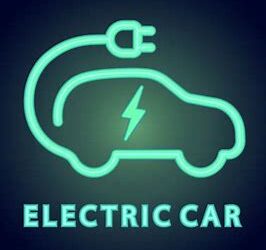

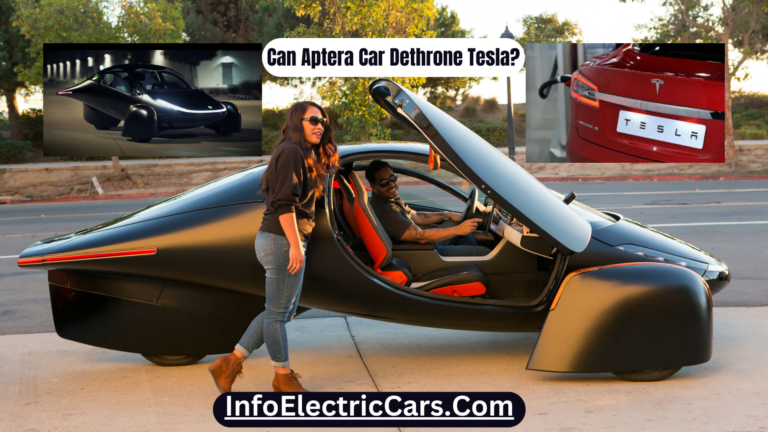
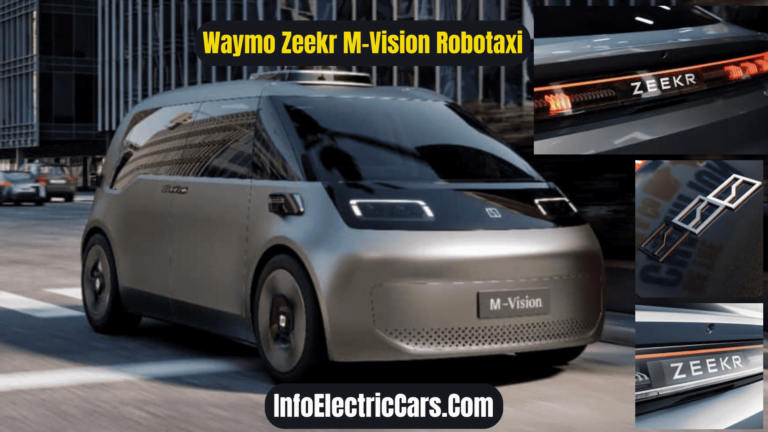
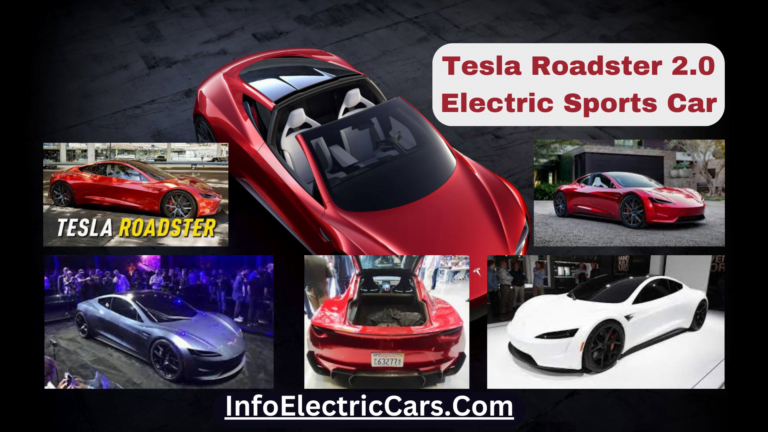
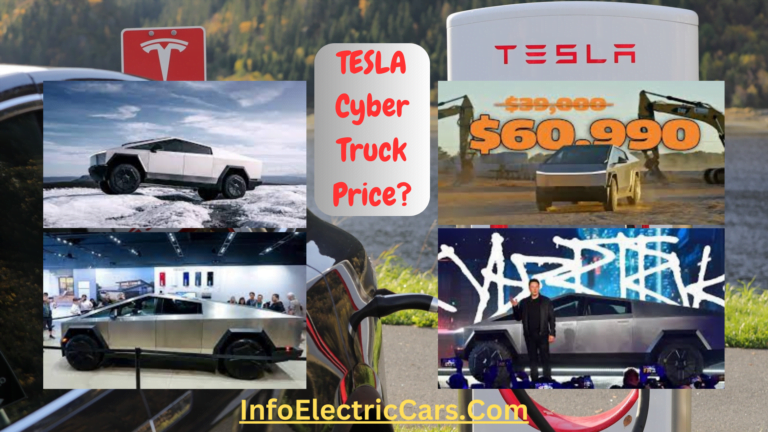
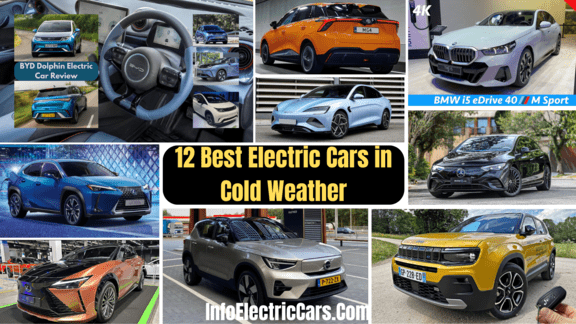
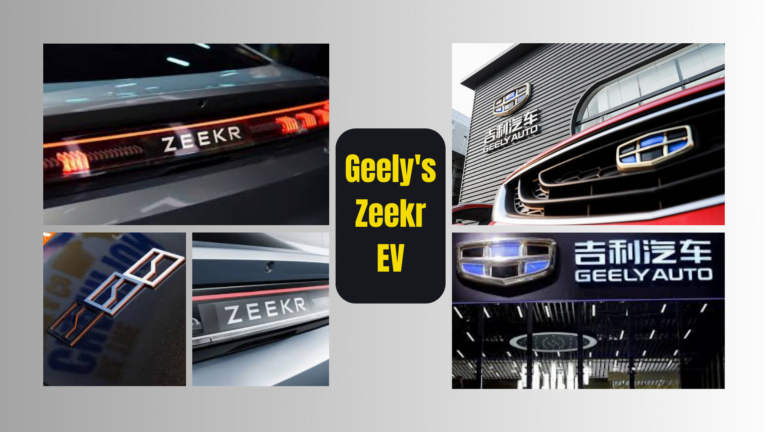
6 Comments